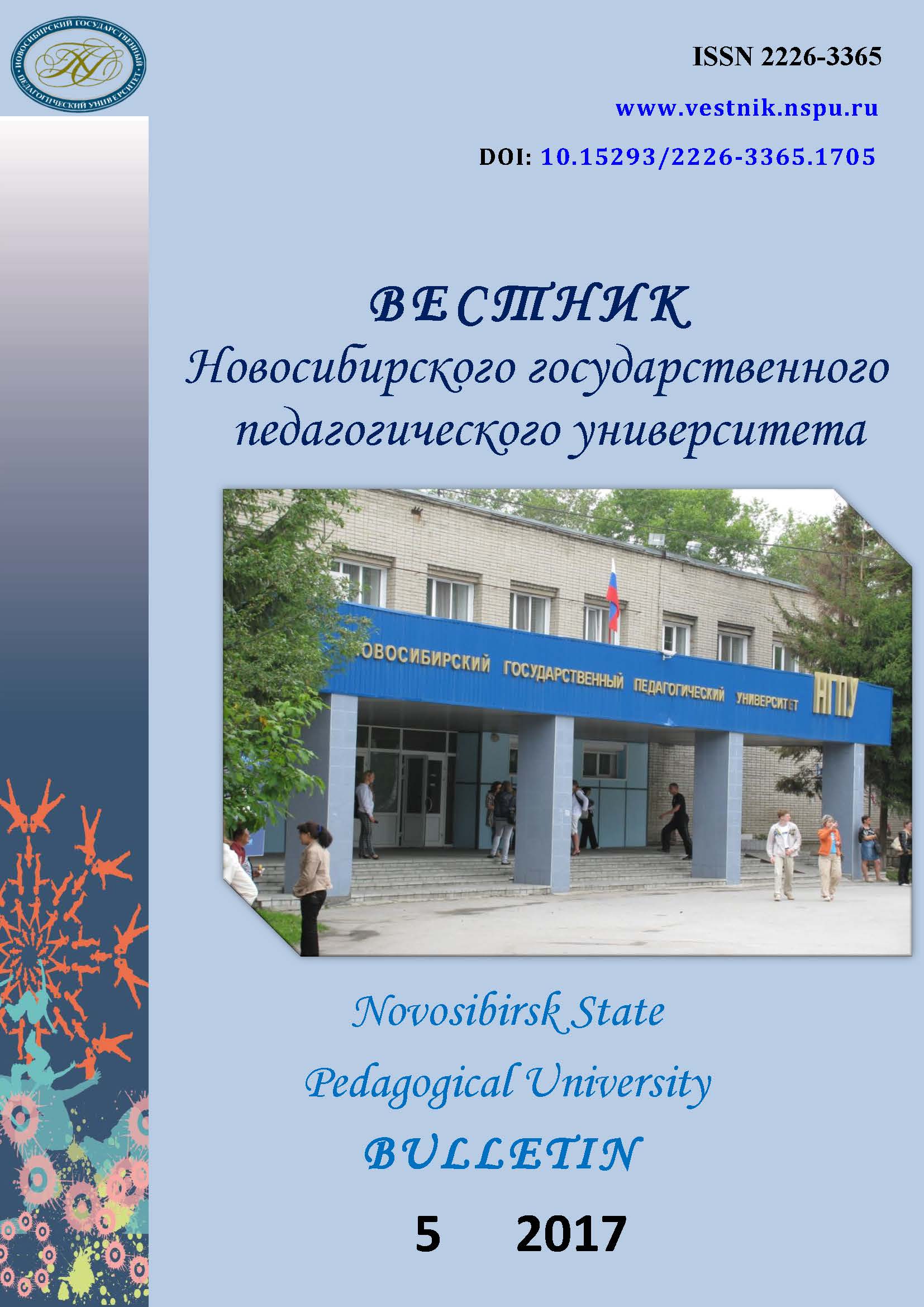Концептуально-теоретические основы здоровьесозидающего воспитания учащейся молодёжи в условиях постиндустриального общества
Conceptual and theoretical foundations of health promotion education of student youth in conditions of postindustrial society
Author(s): Anatoly Gennadievich Madzhuga, Lylyja Bakirovna Abdullina, Dmitry Petrovich Samorodov, Natalyja Nikolaevna MalyarchukSubject(s): School education, Health and medicine and law, Sociology of Education
Published by: Новосибирский государственный педагогический университет
Keywords: Health; Value orientations; Vector; Potential; Education; Competence; Education system; Context; Methodology; Approaches; Metahistory; Position of the individual
Summary/Abstract: Introduction. The article is devoted to the solution of the problem of designing the system of health education of students in the postindustrial society. The purpose of the article is to present conceptual and theoretical foundations of health education of students in the postindustrial society on the basis of analysis and generalization of scientific and theoretical sources and methodological developments and experience of the authors in the education system. Materials and Methods. The study of psychological, pedagogical, cultural, historical and methodological literature was used, during which a theoretical analysis of ideas about the scientific concept of “health promotion education” was carried out, and the essential characteris-tics of the organization of the process of health promotion education of students in the postindustrial society were identified. The study also used observational methods (direct, indirect, included observation): observation of the educational process and the activities of students. The research methods were determined by its goals, tasks of a specific stage, conceptual approaches implemented in the study, which provided the necessary depth of elaboration of the main aspects of the problem. Results. In this article, the authors consider the conceptual and theoretical foundations of health education. The authors pay special attention to the characterization of health education, as one of the socio-cultural contexts of individual's health-building position. The determinants which influence the effectiveness of the process of health-promotion education, its principles and targets are revealed. On the basis of the theoretical analysis of the literature, the authors have clarified the definition of the concept “health promotion education”, show its relationship with the meaning of creation of students’ health as a new characteristic with the main focus on the development of moral qualities of a growing person. Describing the health-building position of an individual, the authors describe the basic structural components of this personal education: valeologic setting, metacognitive abilities, affective attribution, and health literacy compe-tence. In the context of their research, the authors describe the socio-cultural context as a kind of “chronotope” of the health-building potential of an individual, that is, a broader psychological space reflecting the representation of sociocultural phenomena in their correlation with the proper factors of health formation. The content of the article reveals the essence of socio-personal and metahistorical approaches, which serve as a methodological basis for health promotion education. In the context of the research, it is argued that the interaction of parents and educators in preserving and developing schoolchildren’s health in conditions of moral and value crisis must reach a fundamentally new level of teammateship – collaborated efforts of educators and students’ parents in resisting the destruction of traditional Russian values. Conclusions. The expediency of socio-personal and metahistorical approaches in the design of the system of health education of students in the conditions of postindustrial society, which act as its conceptual and theoretical basis, is substantiated.
Journal: Вестник Новосибирского государственного педагогического университета
- Issue Year: 7/2017
- Issue No: 5
- Page Range: 128-145
- Page Count: 18
- Language: Russian

